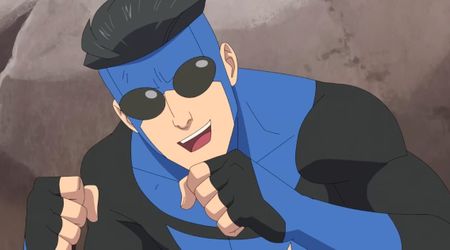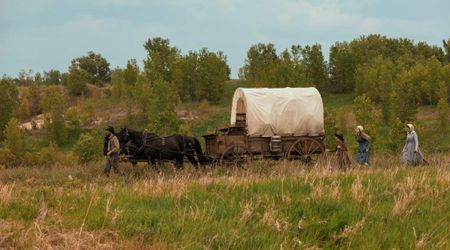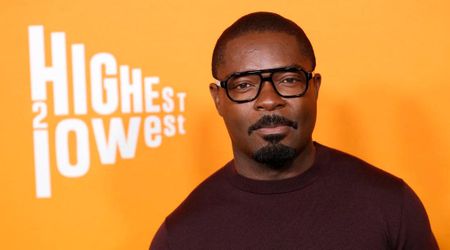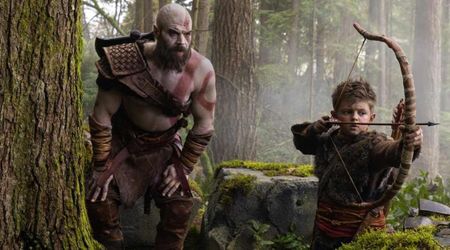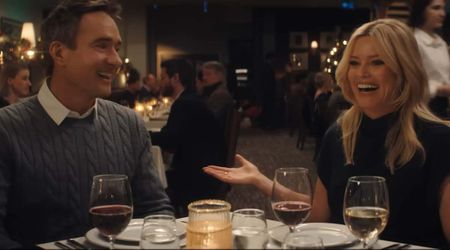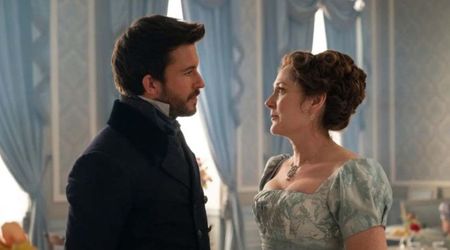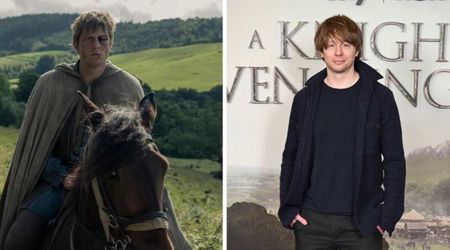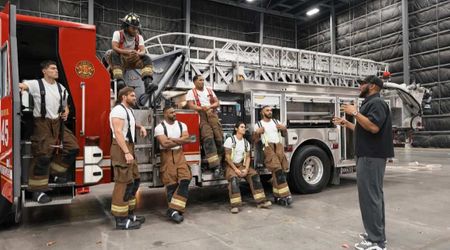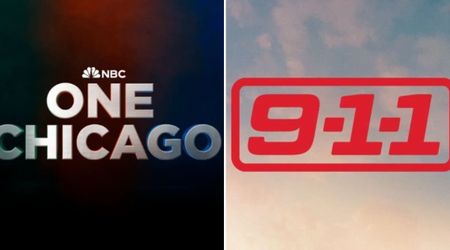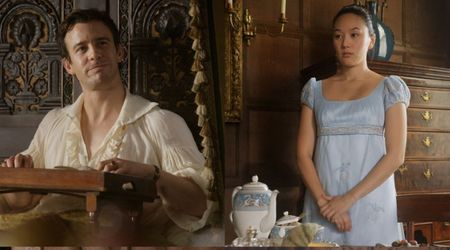Bye-bye BoJack: A love letter to the horseman who taught us how to live a life of guilt

“You're BoJack Horseman. There's no cure for that.” Something strange and wondrous begins to happen once you begin to see BoJack Horseman as a concoction of all the flawed men you've known. Call him the classic TV anti-hero, a raging alcoholic or even a narcissistic misanthrope, the famous '90s sitcom star only gets real with time.
It gets a little too real when you realize you have a part of BoJack in you — over and over, people around you get hurt. Not necessarily because you mean to hurt them, but you just don't care. You move on, pretending it didn't tear you apart. But, on those lonely nights, when it hits you again, thumps loudly in your chest, you tune in to see the cartoon horse, living with all those sins and sorrows — just like you.
With the head of a talking horse and the body of a man, BoJack entered our lives in 2014 and changed it forever. The tragicomedy sprung to life when Raphael Bob-Waksberg took inspiration from comic artist and illustrator Lisa Hanawalt’s rough-hewn drawings and sent a half-baked idea to Netflix. The satirical animated series was not an overnight sensation. 'BoJack Horseman' took its own sweet time to get into the heads of the fan-base it now boasts of.
To critique a show that, in itself, is a critique of human emotions doesn't seem fair. And words can never adequately convey the incredible impact of fiction on our souls. So, this is just a letter to the “self-pitying masochist” who taught us how to live a life of guilt with head held high.
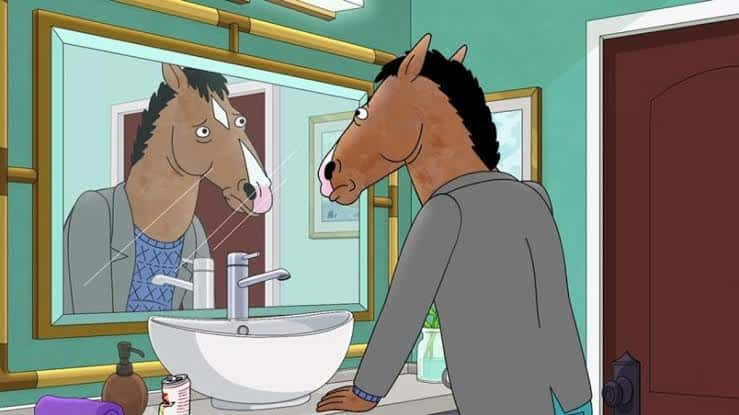
The complexity of human emotion
Often dubbed as meta, 'BoJack Horseman' is rather existential and delves deeper into the complex human subsistence. It is difficult to explain what the show brings to the table but BoJack's dialogue comes close: “This is a situation comedy. No one watches the show to feel feelings. Life is depressing enough already.”
With visually inventive elements, it masterfully uncloaks drug abuse, depression, neglection, isolation, suicide, narcissism, aggression, sexual misconduct and the urge for self-destruction. It is almost poetic how the writers douse color into all dark facets of life. One of the best episodes, 'Free Churro' presents hilarity with hopelessness in just one monologue, and the flashbacks in 'Brand New Couch' masterfully show childhood trauma and the need for escapism in wordless scenes.
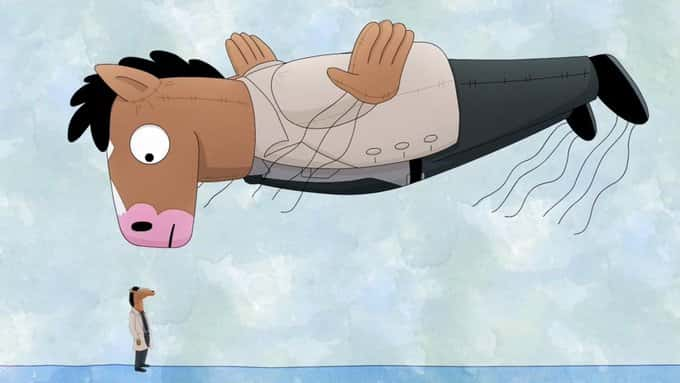
A colorful world of animal-humans
A pink cat and a yellow labrador, at first glance, often pose one question in mind: why are half the characters animals? There are deers, lemurs, an owl, a rabbit, bear, tortoise, and even a scorpion. Of course, it is bizarre. Perhaps, it is to add a “fun metaphorical” element that normal humans could never do justice to. The animated anthropomorphic characters enter for “just a series of unrelated wacky adventures,” and take the show to a higher level of parody.
Forget BoJack, all the characters are so well-etched that they deserve a show of their own. Take Sarah Lynn, who kisses death to kill the façade of life, or the hard-to-please Kelsey Jannings, who quietly shuts her doors to the world and neither gets justice nor closure in the form of BoJack's apology letter from one of its finest episodes 'Fish Out of Water'. Powerful female characters like Gina Cazador, who is termed as “difficult” after the “attack” or the lonesome Ana Spanikopita who manipulates everyone at work blend a brilliant fringe and the lovable Hollyhock adds an endearing spirit to the show.
The boy gang is no less. If Judah Mannowdog's unparalleled professional dedication is an anecdote to remember, it is the comical relief from classic Todd-shenanigans that fill the show with delightful banter. And you may hate Mr. Peanutbutter's over-optimism, but without his clumsiness, the show is incomplete.
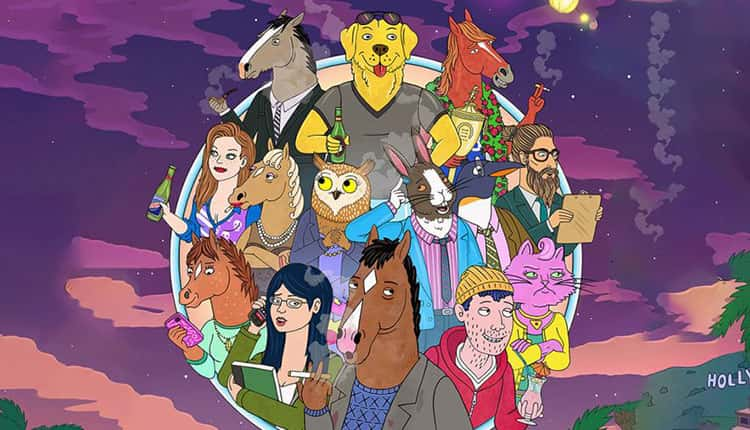
Soul of the show
The three main characters — Diane, BoJack and Princess Carolyn — are the soul of the show. Struggling with self-doubt and the crippling desire to find love and happiness, they slowly slip through the cracks but climb the ladder again. “Same thing that always happens. You didn’t know me and then you fell in love with me. And now, you know me,” BoJack says, summing up every broken relationship ever.
Princess Carolyn's never-back-down attitude is an inspiration each time: “You gotta get your shit together. Yesterday you let yourself fall in love a little bit and you got your heart broken. Serves you right for having feelings! Starting now you are a hard, heartless career gal. Go to work, be awesome at it, and don't waste time on foolish flights of fancy.”
As the last part of the final season begins, BoJack says, “Acting is leaving everything behind and becoming something completely new.” Completely new — is that what the cartoon horse becomes — or is he the same old egomaniac he has always been? To answer that question is to look deep within and wonder: can people ever really change themselves in this ever-changing world? The answer is no.
We're all a puzzle pieced together with good, bad and ugly parts. As Diane explains quite early on: “There’s no such thing as ‘bad guys’ or ‘good guys.’ We’re all just guys who do good stuff sometimes and bad stuff sometimes. And all we can do is try to do less bad stuff and more good stuff. But you’re never going to be good because you’re not bad.”
Together, the trio's personal turmoil and multi-layered arcs fill hearts with compassion, every single time.
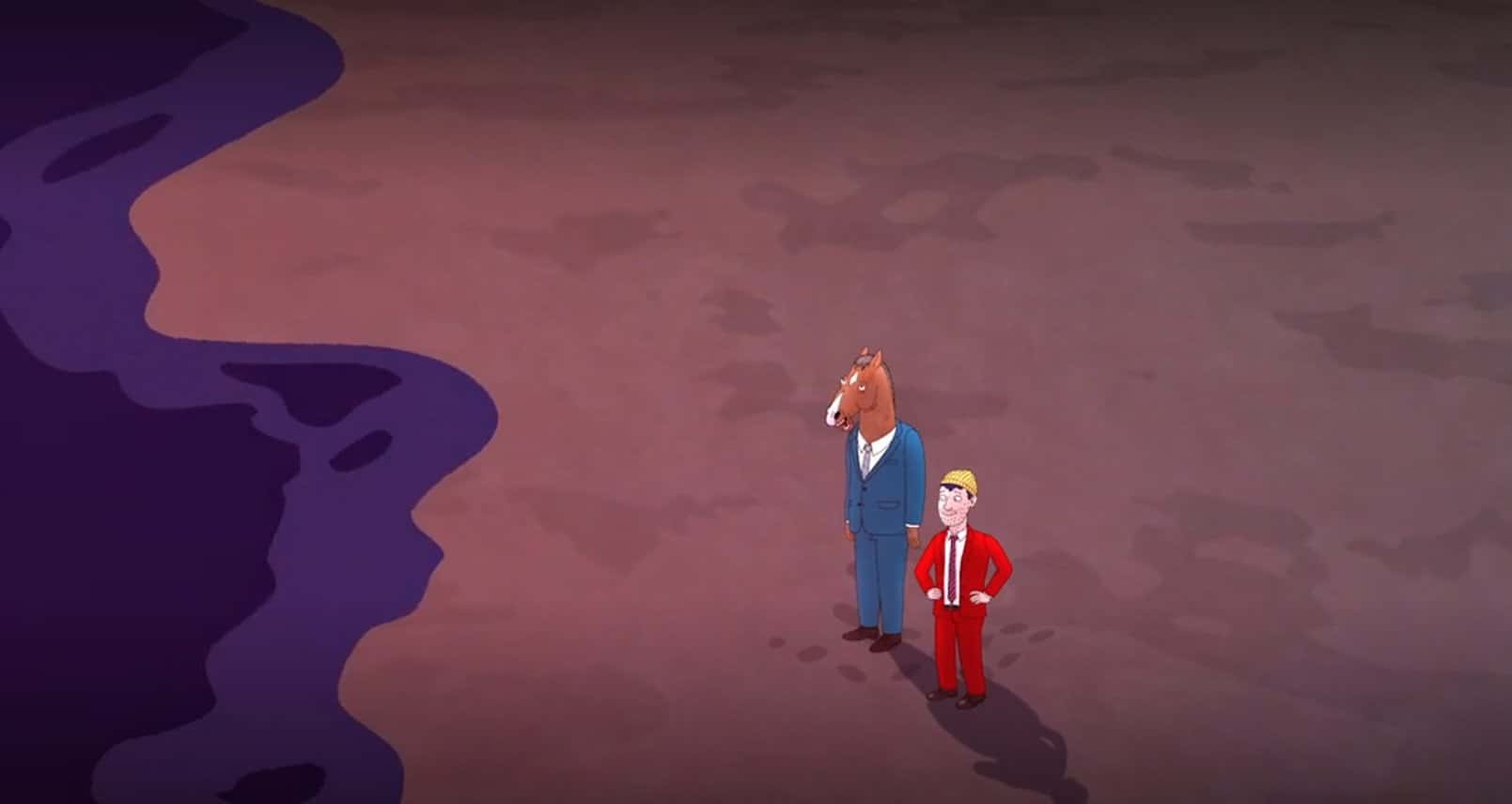
Wacky wit in wordplay
The dialogues have an effect that slices your heart into two pieces. Remember how BoJack begs Diane, “I need you to tell me that I’m a good person. I know that I can be selfish and narcissistic and self-destructive, but underneath all that, deep down, I’m a good person, and I need you to tell me that I’m good. Diane? Tell me, please, Diane. Tell me that I’m good.” Or when he tells her, “We’re just two lonely people trying to hate ourselves a little less.”
The series has helped people carry on despite their troubles: “It gets easier. Every day it gets a little easier. But you gotta do it every day —that’s the hard part. But it does get easier.”
But it's not just about the allegorical lessons it imparts, 'BoJack Horseman' has a witty way with words. Clever tongue-twisters and wisecracks like, “Carolyn, you are my gritty, witty city kitty. I want you with me, fifty-fifty,” and “I had my doubts when he did the scene from Proof. But when he did the scene from Doubt. I was like: 'There's the proof,'” often stump you without a warning.
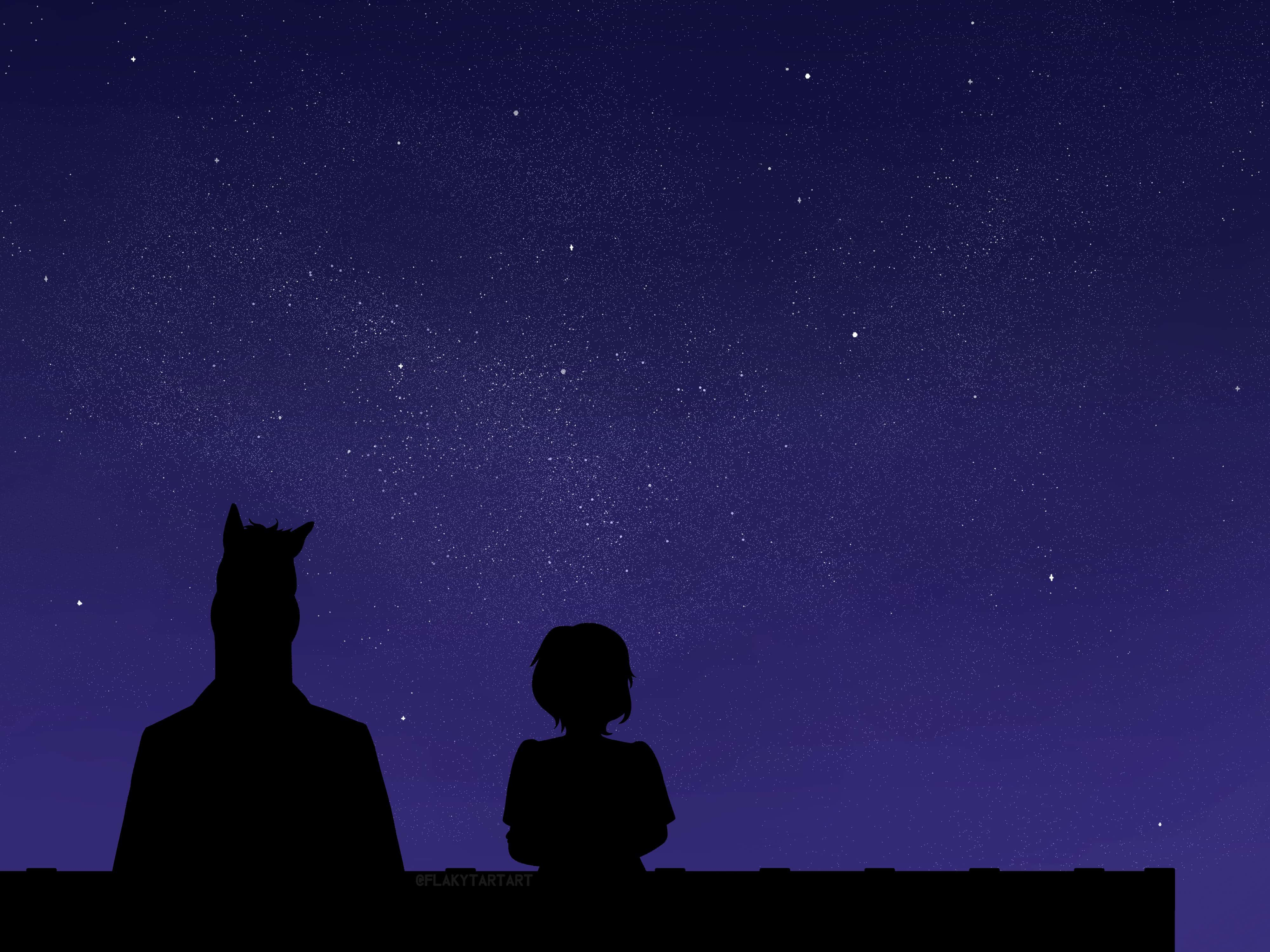
Bye-bye BoJack!
Like every good thing, 'BoJack Horseman' comes to an end. It is time to draw the curtains to the good, old bliss that kept you going through bad days.
Why the long face, you ask? The solace lies in Todd's parting words: “You do the hokey pokey and you turn yourself around! That's what you do: you turn yourself around.” BoJack mocks him, “I don’t think the songwriters thought about the existential significance of the lyric.” But, Todd's uplifting spirit is what wins the day. “Isn’t the point of art, less what people put into it, more what they get out of it?” Yes, it is, indeed!
In the end, a blue sky twinkling with a silver cascade of stars gazes back at BoJack and Diane as 'Mr. Blue' plays in the background. “Life's a bitch and then you die, right?” BoJack asks. “Sometimes,” Diane says. “Sometimes, life's a bitch and then you keep on living.” There is a sense of intoxicated rapture in how they stare at the gleaming stars and sit in silence.
You wish their conversation would last a little longer, but it doesn't. And like Diane and BoJack, you sit and stare, processing everything, until the credits roll out. What a phenomenal feeling! Yes, 'BoJack Horseman' is over and everything is worse now. But it was nice while it lasted.

